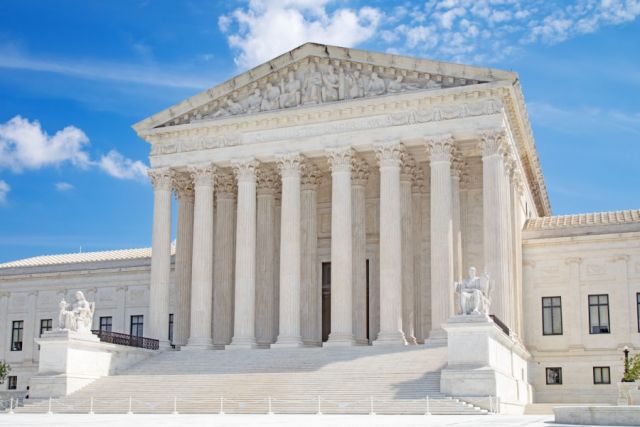
(Source: Shutterstock.com)
The U.S. Supreme Court declined a request for further review of a suit challenging the authority of the Federal Energy Regulatory Commission’s eminent domain authority, brought by landowners along the route of the Mountain Valley Pipeline in Virginia.
The Justices released their decision on May 20, according to court documents.
The decision was the latest in one of several lawsuits that inhibited progress on the MVP project until Congress included a provision in a debt bill in 2023 directing agencies to grant the required environmental permits for completion.
The Mountain Valley Pipeline is a 303-mile, 2 Bcf/d natural gas line stretching from Northwestern West Virginia to Southern Virginia. The system is a joint venture between Equitrans Midstream, NextEra Energy, and utilities Consolidated Edison, RGC Resources and AltaGas. Equitrans will operate the pipeline. The line is considered crucial for opening up Appalachian Basin natural gas to markets in the Mid-Atlantic and Southeast U.S.
The FERC has authority over the pipeline as it crosses state borders. In 2020, property owners brought suit, arguing that FERC does not have constitutional authority to condemn their land for the pipeline path. FERC chose not to respond to the petition.
The May 20 decision marked the second time the Supreme Court had reviewed the case. In April 2023, the Supreme Court sent the petition back to an appellate court after the lower court dismissed the case. The courts did not rule on the FERC’s authority, deciding instead that the case had been filed too late, according to a Reuters report.
The appeals court rejected the case again in February. On May 20, the Supreme Court decided not to review it again.
The MVP is expected to be completed by the end of the second quarter of 2024.
Recommended Reading
EOG Secures Award to Explore Abu Dhabi for Unconventional Oil
2025-05-16 - U.S. shale giant EOG Resources will evaluate 900,000 acres in a hydrocarbon-rich basin in Abu Dhabi under a new concession agreement with ADNOC.
NextEra: US Power Demand Will Call for Extra 71 Bcf/d Equivalent
2025-04-29 - NextEra Energy expects that of the total 450 GW of new electricity demand in the coming few years, 75 GW will be gas-fired—or some 12 Bcf/d. But turbines and skilled labor are needed.
Kongsberg Maritime to Equip New Construction Vessels for Sea1 Offshore
2025-06-04 - Kongsberg Maritime and Sea1 Offshore will also collaborate on a study to measure emissions reductions.
JV Behind Midland Basin AI Campus Project Signs Power Generation Agreement
2025-06-04 - Power Forward Energy Solutions will manufacture, install and operate systems capable of generating 250 megawatts.
US Drillers Add Oil, Gas Rigs for First Time in Four Weeks
2025-04-18 - The oil and gas rig count rose by two to 585 in the week to April 17. Despite this week's rig increase, Baker Hughes said the total count was still down 34 rigs, or 5% below this time last year.
Comments
Add new comment
This conversation is moderated according to Hart Energy community rules. Please read the rules before joining the discussion. If you’re experiencing any technical problems, please contact our customer care team.




